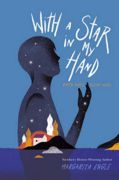
A novel in verse about the life and work of Ruben Dario, a Nicaraguan poet who started life as an abandoned child and grew to become the father of a new literary movement. Includes historical notes.

A novel in verse about the life and work of Ruben Dario, a Nicaraguan poet who started life as an abandoned child and grew to become the father of a new literary movement. Includes historical notes.
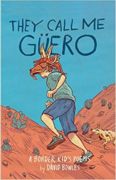
Twelve-year-old Guero, a red-headed, freckled Mexican American border kid, discovers the joy of writing poetry, thanks to his seventh grade English teacher.
Featured in WOW Review Volume XII, Issue 1
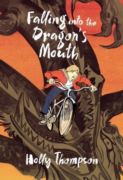
“In this novel in verse, a resilient American boy deals with bullying and the challenges of being an outsider that come with living in a Japanese fishing village”–
See the review at WOW Review, Volume 8, Issue 3
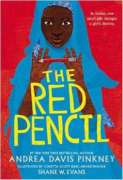
After her tribal village is attacked by militants, Amira, a young Sudanese girl, must flee to safety at a refugee camp, where she finds hope and the chance to pursue an education in the form of a single red pencil and the friendship and encouragement of a wise elder.
Featured in WOW Review Volume IX, Issue 2.
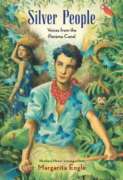
Fourteen-year-old Mateo and other Caribbean islanders face discrimination, segregation, and harsh working conditions when American recruiters lure them to the Panamanian rain forest in 1906 to build the great canal.
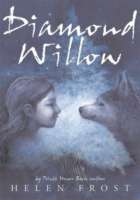
There’s
more to me than
most people
see.
Twelve-year-old Willow would rather blend in than stick out. But she still wants to be seen for who she is. She wants her parents to notice that she is growing up. She wants her best friend to like her better than she likes a certain boy. She wants, more than anything, to mush the dogs out to her grandparents’ house, by herself, with Roxy in the lead. But sometimes when it’s just you, one mistake can have frightening consequences . . . And when Willow stumbles, it takes a surprising group of friends to help her make things right again.
Using diamond-shaped poems inspired by forms found in polished diamond willow sticks, Helen Frost tells the moving story of Willow and her family. Hidden messages within each diamond carry the reader further, into feelings Willow doesn’t reveal even to herself.
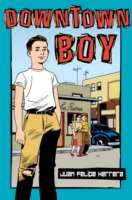
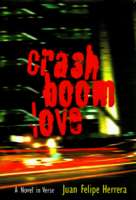
In this novel in verse, unprecedented in Chicano literature, renowned poet Juan Felipe Herrera illuminates the soul of a generation. Drawn from his own life as well as a lifetime of dedication to young people, CrashBoomLove helps readers understand what it is to be a teen, a migrant worker, and a boy wanting to be a boy. Sixteen-year-old Cesar Garcia is careening. His father, Papi Cesar, has left the migrant circuit in California for his other wife and children in Denver. Sweet Mama Lucy tries to provide for her son with dichos and tales of her own misspent youth. But at Rambling West High School in Fowlerville, the sides are drawn: Hmongs vs. Chicanos vs. everybody vs. Cesar, the new kid on the block. Precise and profound, CrashBoomLove will appeal to and resonate with high school readers across the country.
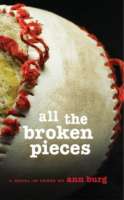
Two years after being airlifted out of war-torn Vietnam, Matt Pin is haunted: by bombs that fell like dead crows, by the family — and the terrible secret — he left behind. Now, inside a caring adoptive home in the United States, a series of profound events force him to choose between silence and candor, blame and forgiveness, fear and freedom. By turns harrowing, dreamlike, sad, and triumphant, this searing debut novel, written in lucid verse, reveals an unforgettable perspective on the lasting impact of war and the healing power of love.
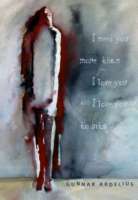
When Morris meets Betty, love is unavoidable. In short prose
passages, we follow the course of their passionate first love. A
confident debut written in a surprising form, which gives the story intelligence and depth.
Morris feels like Betty can see everything he’s thinking. Betty
believes Morris understands her like no one ever before. She tells him everything, even about the dried-up worm that she saw on the sidewalk on the way to school. But sometimes the darkness closes in on Morris. His father is manic-depressive and his mother is always talking about dreams and poetry and her new boyfriend. Morris begins to wonder if crazy people are drawn to each other. Betty points out that he is like his father. As their love grows, it almost consumes them. Soon it’s as if they are always trying to escape
themselves until they ask, “How do you know when it’s over?”